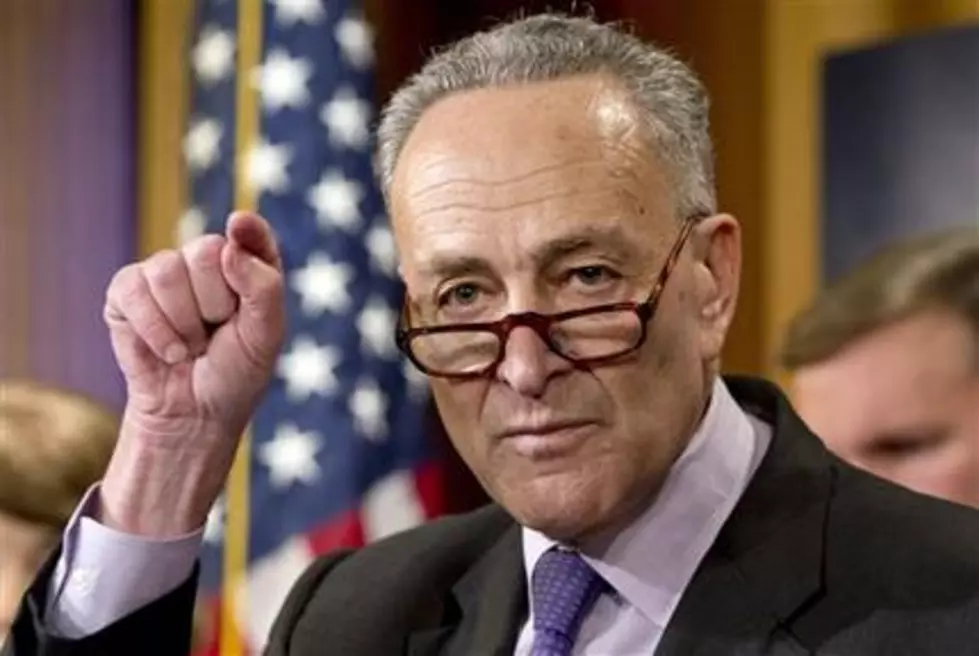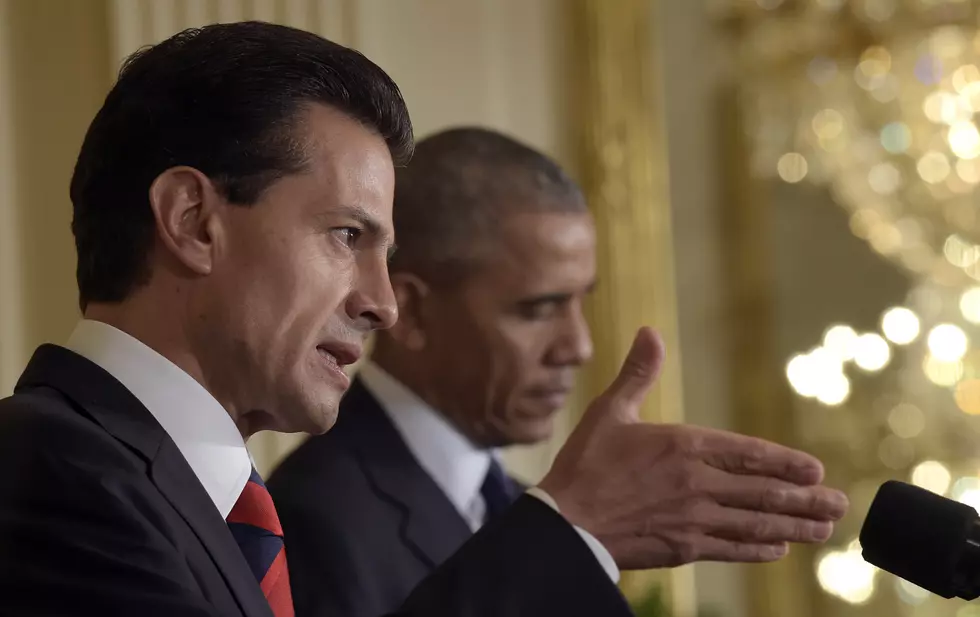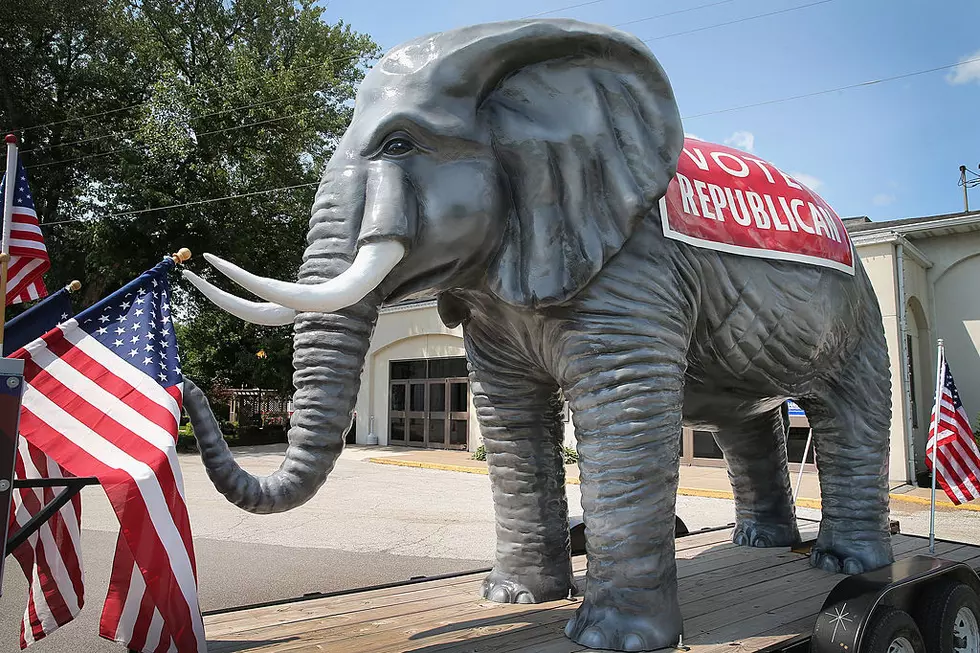
Senate Democrats rammed through judges, now GOP calls shots
After more than 400 days, Luis Felipe Restropo is finally getting a confirmation vote in the Senate that would make him the first Hispanic federal judge on the U.S. Court of Appeals for the 3rd Circuit.
With Monday's vote on the federal judge from Philadelphia, the Senate will have cleared its to-do list of nominees to the powerful appeals courts.
Nine vacancies will remain, but President Barack Obama has yet to nominate people for those posts.
Among federal trial judges, 26 of Obama's nominees -- out of 59 current vacancies -- await votes.
The Judiciary Committee has approved 13 of them, all by routine voice votes.
The vacancy rate for the federal judiciary rivals recent lows, and the number of current vacancies is almost exactly the same as it was when Obama took office seven years ago.
But don't give credit to Republicans who now control the Senate. Chalk it up to a burst of confirmations in 2014 after majority Democrats rewrote filibuster rules and rammed through 89 judges, almost double the number of the previous year and the most since Bill Clinton's second year in office.
When 2015 opened, there were just 40 vacancies out of 852 authorized federal appeals and trial judges.
Last year, the GOP-led chamber confirmed just 11 federal judges, the least in recent memory. That has Democrats crying foul, suggesting the pace is dictated by electoral politics.
"It's glacial," says New York Sen. Chuck Schumer, one of the Democrats' point men on judges. "It's for the partisan purpose of hoping for a Republican president."
The top Judiciary Committee Democrat, Patrick Leahy of Vermont, criticized Republicans in a Senate speech last month for having "the dubious distinction of matching the record for confirming the fewest annual number of judicial nominees in more than half a century."
Leahy added: "Too many Americans who have sought justice in our federal courts this year have instead found delays and empty courtrooms because of Senate Republicans' obstruction on judicial nominees."
It is true that the number of vacancies has risen, but it is still slightly below the 59 vacancies Obama inherited in 2009 when he succeeded Republican President George W. Bush.
Vacancies spiked after that as more judges stepped down and as the Obama White House moved slowly on nominating replacements.
Confirmations to lifetime appointments to the federal courts have long been a flashpoint in an increasingly polarized Washington.
The current situation pales in comparison with the 2014 struggle that divided the Senate over new rules to accelerate the process.
Almost a decade prior, after a spate of Democratic filibusters of President George W. Bush's judicial nominees, GOP leaders explored the same "nuclear option" to get nominees confirmed, but the fight was diffused by a bipartisan compromise.
When Democrats controlled the Senate, Republicans were less likely to filibuster outright, though they were often stingy in permitting votes.
In December 2014, Texas Sen. Ted Cruz, now a Republican presidential contender, created an opening that Democrats exploited, allowing 11 new judges to be confirmed in an end-of-session burst just before Republicans retook control of the Senate.
Overall, Obama has named 25 nominees for 67 pending vacancies, according to the U.S. Judicial Conference.
The Senate Judiciary Committee under Republican Sen. Charles Grassley of Iowa has processed 19.
"Senator Grassley's Judiciary Committee moved at the same pace in 2015 that it did under Democrat control in 2007 during the last two years of President Bush's presidency," said Grassley spokeswoman Beth Levine. "The 2015 average vacancy rate for the federal judiciary is among the lowest in 25 years." She said: "Just by looking at the numbers, President Obama's nominees are being treated just as fairly as President Bush's nominees were."
Democrats note that they confirmed many more judges -- 40 -- in the seventh year of Bush's presidency in 2007 than Republicans confirmed last year.
"The analogy is the last two years of the Bush administration," Schumer said. "And we confirmed many more."
Grassley is not the bad guy in the view of some Democrats. They blame top Republicans like Majority Leader Mitch McConnell of Kentucky for the slow pace.
There's little doubt that the hardball tactics employed by Democrats in 2014 are part of the reason confirmations dropped last year.
The process typically requires the Senate to agree unanimously to schedule a vote if a confirmation is to occur, and the chamber is stocked with Republicans opposed to Obama.
In the final year of Obama's presidency, Senate leaders have agreed that four more judges will be confirmed over the next few weeks.
Since more than two-thirds of the vacancies are in states with at least one GOP senator, it's likely that at least a few more nominees will get a vote before the process virtually shuts down in an election year.
(© 2016 The Associated Press. All rights reserved. This material may not be published, broadcast, rewritten or redistributed)
More From New Jersey 101.5 FM









